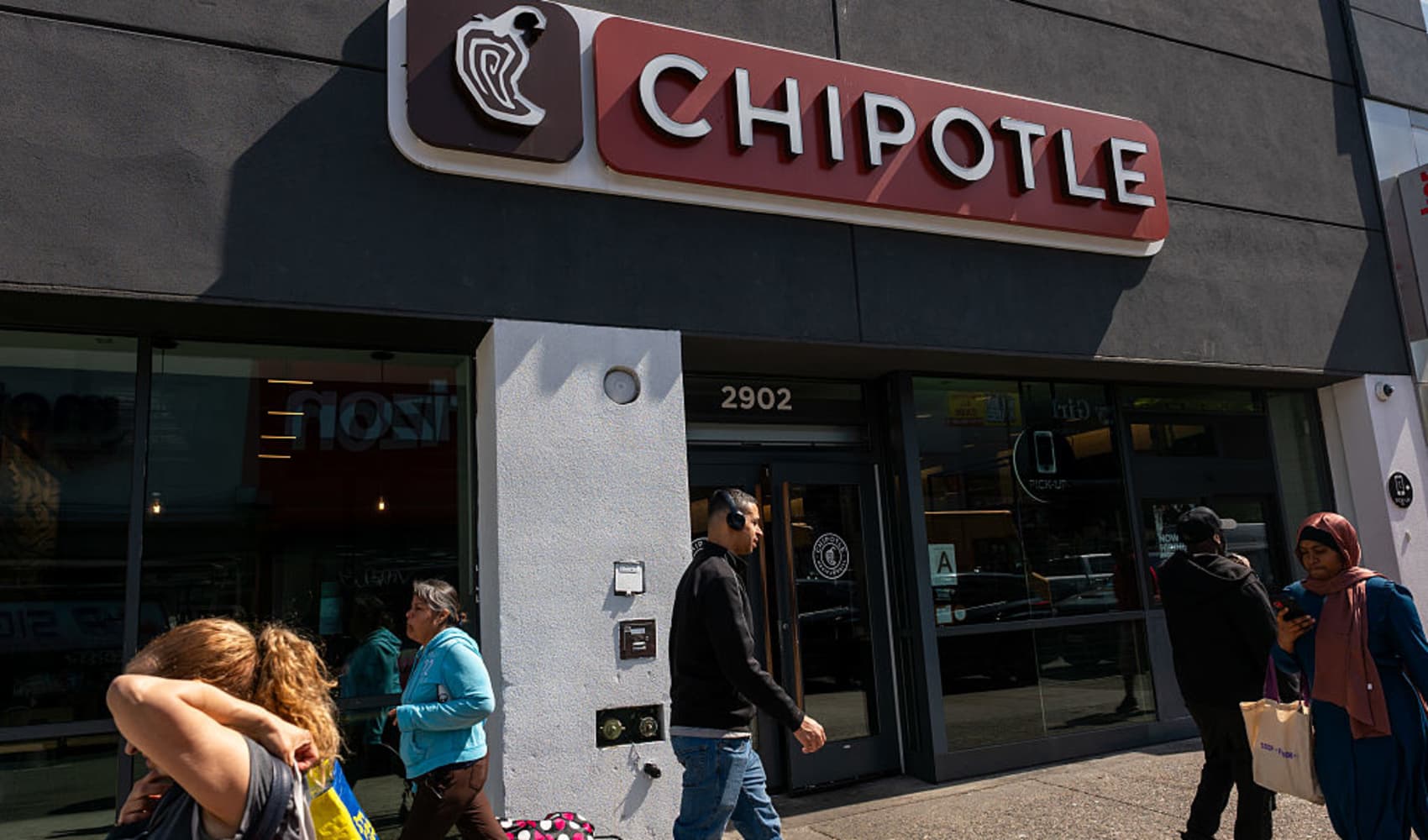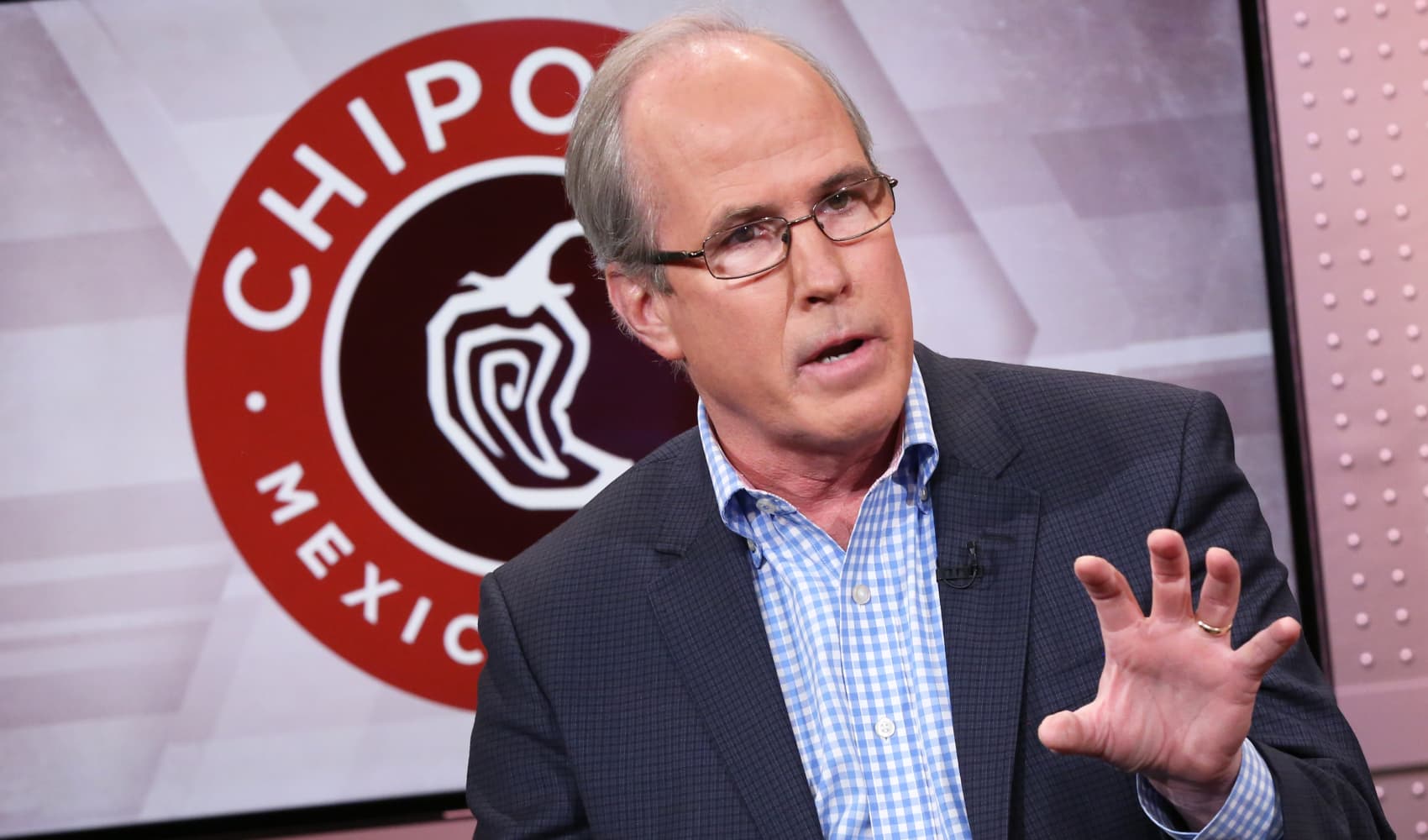Trump's Tariffs Worrying Companies: Chipotle, Delta, More
Trump's Tariff Tsunami: Are Chipotle and Delta Bracing for Impact?
The Economic Earthquake: Tariffs Shake Corporate Confidence
Hold on to your hats, folks! The economic landscape is getting a little bumpy, and you might feel it in your wallet. Companies, from your favorite burrito joint, Chipotle, to the airline you trust for your vacations, Delta, are starting to feel the tremors from the ongoing trade disputes and, specifically, President Trump's tariffs. Are these just little aftershocks, or are we talking about a full-blown economic earthquake? Let's dig in and see what's happening behind the scenes.
The Forecast is Cloudy: Companies Downgrade Expectations
It’s not just doom and gloom, but there's definitely a sense of unease in corporate boardrooms. A range of consumer companies are playing it safe, cutting their full-year forecasts, and pointing squarely at tariffs and a more cautious consumer as the main culprits. What does this mean for you? Potentially higher prices on everyday items and a generally more hesitant economy.
Who's Feeling the Pinch?
- Chipotle: Even your guac habit might become more expensive!
- PepsiCo: That refreshing soda pop? Yep, potentially pricier.
- Procter & Gamble: From diapers to detergent, your household essentials could see a price hike.
These aren't small fry companies; these are giants! When they start adjusting their outlooks, it's time to pay attention.
Price Hikes on the Horizon: Prepare Your Budget
Brace yourselves – price increases might be on the way. P&G, Keurig Dr Pepper, and Hasbro have all publicly stated that tariffs could force them to raise prices in the near future. Think about it: tariffs increase the cost of importing raw materials and components, and that added cost eventually gets passed on to the consumer. It's a ripple effect.
Why the Worry? Understanding the Tariff Impact
What exactly are these tariffs doing? Simply put, they are taxes on imported goods. Imagine trying to bake a cake, but every ingredient from flour to sugar suddenly costs more. You’d either have to make a smaller cake, charge more for each slice, or find cheaper ingredients (which might compromise the taste, right?). Companies are facing similar dilemmas.
The Cost of Imported Goods
Tariffs directly increase the cost of imported goods, impacting companies that rely on overseas suppliers. This impacts everything from electronics to clothing to food.
Supply Chain Disruptions
The uncertainty surrounding tariffs can also disrupt supply chains, making it difficult for companies to plan and manage their operations effectively. It’s like trying to navigate a road with constantly changing detours.
The Consumer Confidence Conundrum: Are We Holding Back?
It's not just tariffs; there's also the issue of consumer confidence. Are we feeling less secure about the economy and therefore less willing to spend? That's the big question. When consumers tighten their purse strings, companies feel the pressure.
The Psychology of Spending
Consumer spending is driven by psychology. When people feel confident about their financial future, they are more likely to spend money. When they feel uncertain, they tend to save.
Impact on Demand
Reduced consumer spending can lead to lower demand for goods and services, which in turn can hurt company profits. It's a vicious cycle.
A Dozen Down: Companies Cutting Their Outlooks
We’re not talking about just a few companies tweaking their projections; at least a dozen have already cut or pulled their full-year outlooks. And with several more weeks of quarterly reports still to come, the numbers could climb higher. This is a significant trend, signaling a broader economic slowdown.
Beyond the Headlines: The Real-World Impact
So, what does all this mean for you and me? It's not just about slightly more expensive burritos or sodas. It's about potential job losses, slower economic growth, and a general feeling of economic uncertainty. The effects of tariffs ripple through the entire economy.
The Political Chess Game: Trade Wars and Tariffs
Let's not forget that tariffs are often used as a political tool in trade negotiations. They can be a way to pressure other countries to change their trade policies, but they can also have unintended consequences for businesses and consumers at home. It's a complex chess game with high stakes.
The Global Perspective: Are Other Countries Feeling the Heat?
This isn’t just a US problem. These tariffs have a global impact, affecting international trade and economic relationships. It’s a web of interconnected economies, and when one thread is pulled, the whole thing can unravel a bit.
Innovation Under Pressure: Can Companies Adapt?
This is where things get interesting. How are companies responding to these challenges? Some are trying to innovate, finding ways to cut costs, streamline operations, or develop new products. Others are looking to diversify their supply chains, finding alternative sources for their raw materials.
The Future of Trade: What's Next?
The future of trade is uncertain. Will the trade disputes be resolved? Will new trade agreements be reached? Only time will tell. But one thing is clear: businesses need to be agile and adaptable to navigate this changing landscape.
Investing in Uncertainty: How to Protect Yourself
For investors, this is a time to be cautious. Diversifying your portfolio and focusing on companies with strong fundamentals is key. And remember, economic cycles are normal. Ups and downs are part of the game.
Are there Winners in this scenario?
That's the big question, isn't it? While many companies are facing challenges, some might actually benefit from tariffs. For example, domestic producers who compete with imported goods might see increased demand for their products. It’s not a zero-sum game, but the playing field is definitely shifting.
The Long View: Staying Informed and Engaged
Ultimately, the best thing we can do is stay informed, understand the issues, and engage in the conversation. Economic policy affects all of us, and it's important to have a voice.
Conclusion: Navigating the Tariff Terrain
So, are Chipotle and Delta worried about Trump's tariffs? The short answer is yes. Companies across various sectors are feeling the pressure, and consumers could soon feel it too. Tariffs are disrupting supply chains, increasing costs, and contributing to a more cautious economic outlook. While the future of trade remains uncertain, companies are adapting, innovating, and trying to navigate this challenging terrain. It's a complex situation with no easy answers, but by staying informed and engaged, we can better understand the impact and prepare for what's to come.
Frequently Asked Questions
- What exactly are tariffs and how do they work?
Tariffs are taxes imposed on imported goods. They increase the price of these goods, making them more expensive for consumers and businesses. This can encourage people to buy domestically produced goods instead, but it can also lead to higher prices overall.
- How do tariffs affect consumers?
Tariffs can lead to higher prices on a variety of goods, from food and clothing to electronics and appliances. They can also reduce consumer choice and make it more difficult for people to afford the things they need.
- What can companies do to mitigate the impact of tariffs?
Companies can try to mitigate the impact of tariffs by finding alternative suppliers, streamlining their operations, or developing new products that are less reliant on imported materials. They can also try to absorb some of the cost of the tariffs themselves, but this can hurt their profits.
- Are there any potential benefits to tariffs?
Tariffs can potentially benefit domestic producers by making imported goods more expensive and giving them a competitive advantage. They can also be used as a tool in trade negotiations to pressure other countries to change their trade policies. However, the overall economic impact of tariffs is generally negative.
- How can I stay informed about the latest developments in trade and tariffs?
You can stay informed about the latest developments in trade and tariffs by following reputable news sources, such as The Wall Street Journal, The New York Times, and Reuters. You can also consult with financial advisors or trade experts to get personalized advice.


